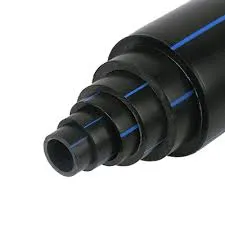Aug . 14, 2024 15:57 Back to list
Choosing the Right PVC Water Supply Pipe for Your Plumbing Needs and Applications
The Benefits of PVC Water Supply Pipes
When it comes to plumbing systems, the choice of materials is crucial for ensuring safety, efficiency, and longevity. Among the various options available in the market, PVC (Polyvinyl Chloride) water supply pipes have gained significant popularity due to their numerous advantages. This article will discuss why PVC pipes are an excellent choice for water supply systems, exploring their features, benefits, and applications.
PVC is a synthetic plastic polymer that has become one of the most widely used materials in the construction and plumbing industries. One of the standout features of PVC water supply pipes is their excellent resistance to corrosion. Unlike metal pipes that can rust over time, PVC pipes do not corrode, which ensures that the water quality remains uncompromised. This property is particularly beneficial in areas with high mineral content in the water, where corrosion can occur more readily.
The Benefits of PVC Water Supply Pipes
Durability is an essential factor when considering water supply systems. PVC water supply pipes are not only resistant to corrosion, but they are also robust and capable of withstanding high pressures. This makes them suitable for a wide variety of applications, from residential plumbing to industrial water supply systems. With proper handling and installation, PVC pipes can last for decades, offering a long-term solution for water transport.
pvc water supply pipe

In terms of cost, PVC pipes are often more affordable than their metal counterparts. The lower material costs and reduced labor expenses contribute to a more economically feasible choice for both new constructions and repair projects. Furthermore, their longevity and low maintenance requirements help to decrease overall life-cycle costs, making them a smart investment for homeowners and businesses alike.
Environmentally conscious consumers will also appreciate the fact that PVC pipes are recyclable. Although the production of PVC raises concerns regarding environmental impact, the recyclability of the material allows for a more sustainable option compared to single-use products. Many manufacturers are actively working on improving recycling programs, which can help mitigate the environmental footprint associated with PVC products.
Despite their many advantages, it is important to ensure that PVC pipes are installed correctly to maximize their performance. Proper installation techniques, such as using the right adhesives and fittings, are crucial to prevent leaks and ensure a watertight seal. Additionally, care should be taken regarding the temperature of the water being transported, as extreme heat can cause deformation in PVC somewhat limiting their application in hot water systems.
In conclusion, PVC water supply pipes offer a host of benefits that make them a preferred choice in plumbing applications. Their resistance to corrosion, lightweight nature, durability, cost-effectiveness, and recyclability are just a few of the factors that contribute to their popularity. As the demand for efficient and sustainable plumbing solutions continues to grow, PVC pipes will likely remain at the forefront of water supply technology. Whether for residential use, commercial projects, or industrial applications, PVC pipes stand out as a reliable and innovative material in the field of water management.
-
Durable PVC Pipe Fittings for Plumbing & Irrigation Needs
NewsAug.18,2025
-
HDPE Steel Belt Reinforced Spiral Corrugated Pipe | High Strength
NewsAug.17,2025
-
HDPE Pipe Fittings: Durable, Leak-Proof Solutions
NewsAug.16,2025
-
Premium CPVC Sheet: High-Temp & Chemical Resistant Solutions
NewsAug.15,2025
-
Durable PPR Pipe for Hot & Cold Water Systems - Easy Install
NewsAug.14,2025
-
Durable HDPE Sheet | Versatile & Impact-Resistant Plastic
NewsAug.13,2025

